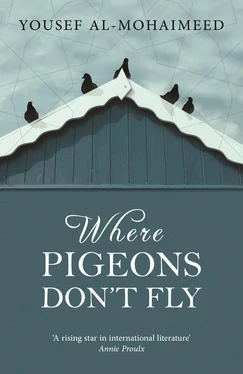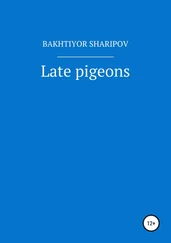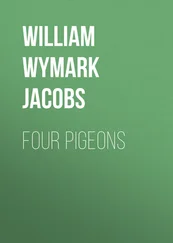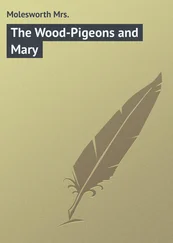Frightened that he might take his revenge, Muwaffaq went with him.
The game began and the crowd roared with one voice, the stadium’s terraces transformed in a vast unruly vessel. Suddenly Fahd felt that it really had become a ship, rolling through the swell, and he became almost dizzy.
Every pass drew a shriek from the Bedouin youth in front of them with his long hair and blue shawl wrapped around his neck and shoulders, while the ground beneath three men next to him had become a sea of shelled sunflower seeds. In the dying minutes of the first half, as Fahd stared distractedly at the people around him, everyone started shouting and screaming and jumping up and down and he leapt up with Saeed. He hadn’t seen the ball enter the net but he saw Hilal’s players running after Sami al-Jaber. It was a moment of overwhelming happiness.
Fahd’s eyes were raised heavenwards towards the floodlights dispersing the darkness, fixed along the rim of the soaring white concrete awning where the pigeons flew over spectators’ heads, hovering around the powerful lights then settling down beside them on the massive steel crossbeams. Every now and then a feather broke free and slowly drifted down, gently rolling back and forth as Fahd tracked its progress until it came to rest in the crowd or landed unnoticed on someone’s shoulder.
At half-time, Fahd asked Saeed if he wanted anything from the cafeteria. Descending the steps and going outside, he was taken aback to find a large crowd around the cafeteria’s high counter, their cries unanswered by the bewildered Bangladeshi employees. Fahd dithered: to return without bringing Saeed any water or sunflower seeds would be pretty feeble, especially if he claimed the crowds as his excuse.
Saeed’s more than friend , he thought to himself. He’s a brother, if not my final support now that my father’s gone, just as my father supported him in obedience to Mushabbab’s wishes. So how am I going to cope with this lot?
He approached tentatively. In front of him a man sat his child on one end of the saddle-shaped counter and screamed in vain at the Bangladeshi. At the other end were four young men. One was wearing a long frizzy wig, another the football shirt of Barcelona’s Brazilian star Ronaldinho, while the remaining pair shouted at the employee who was handing out bottles of water and juice cartons and ineptly counting change. When one of the employees went into the small storeroom at the back leaving his co-worker alone at the front, the man in the Ronaldinho shirt plucked up his courage and, vaulting the high counter, took four water bottles out of an open box in front of the astonished employee.
‘Take the whole box!’ shouted the one in the wig, so he snatched it and set it down in front of his friends amid cries of encouragement. The remaining employee made a run for it, dodging a water bottle and a volley of loud curses, ‘Bangladeshi animal.’
Fahd returned without water or roasted seeds and climbed the terraces to find the band on the pitch, ready to play, and the loudspeakers blaring out fervent patriotic anthems. Suddenly they fell silent and the stadium announcer proclaimed the arrival of the king. The king waved his hand and the crowd went wild, whistling noisily, and then the national anthem started up accompanied by the players and fans.
Now that the king was inside the guards began conducting intensive searches at the entrances to the terraces. Fahd had his pockets carefully patted down by a national guardsman with a thin, stern face who located his wallet and asked him to take it out and then went through his pockets one by one before handing it back. He asked Fahd for his ticket stub; he took it out of his top pocket, and the man silently waved him through.
Why did the soldiers always have the faces of embittered Bedouin or the inert masks of villagers, dead planks devoid of all expression, anger, hatred or joy? Were they always like this, even at home? How did they greet their wives? Did they hug their children like normal people?
His father would turn tail in terror whenever he encountered one of them. He was once riding in his friend’s car when they pulled over outside a Tamimi supermarket. Suleiman got out and was chatting to his friend through the open driver’s side window when he heard the traffic patrol’s loudspeaker give a sudden squawk and felt the red and blue lights slap his face. Stopping in mid-sentence, he took off in a comic sprint, clearly terrified, as though he were yet to cast off the anguish of his years in prison and his fear of prison guards. In fact, the older he got the more frightened, anxious and confused he felt at the sight of any man wearing military uniform, even if it was a lowly rank.
The match came to an end. Fahd was already worried about being late home while Saeed wanted to watch the cup presentation ceremony. Patting his pockets and pulling out his phone Fahd was startled to find five missed calls from his mother and a couple of text messages. He read one: Your uncle’s come home and he’s asking where you’ve got to. I’m begging you, my son: don’t you be late!
— 17 —
FAHD’S FATHER NEVER INSULTED him. Even when Suleiman was angry he tried to ensure that he spoke clearly and to the point. Fahd’s mother had never pulled him by the ear, other than that awful time he had gone out on to the roof of his uncle’s house in Buraida when she had twisted it after finding the a white feather clinging to the bottom of his green winter thaub .
Moreover, his father followed his progress at school and made sure that nobody upset or belittled him, even if it was no more than mocking or hurtful words in front of his classmates. How shocked Suleiman had been to discover the marks of the Qur’an teacher’s beating on Fahoudi’s fingers. He had accompanied him back to the school that same afternoon. Only the duty master was around, but Suleiman threatened to make a complaint to the board of education the following day and expose the school in the papers if the teacher didn’t offer him a written apology and a promise never to do it again.
To Soha he would say that he didn’t want anyone to hurt Fahd, not even to treat him roughly, so that he wouldn’t grow up broken inside, but it didn’t always happen like that. Despite himself, he had to sit there the time Umm Yasser caught Yasser, Fahd and Hissa’s son, Faisal, climbing on the kitchen table and hurling eggs on the ground until the kitchen floor became a sticky yellow. Or rather, she had caught Fahd and Faisal, while Yasser ran into the street. She packed their eyes with table salt until their wails filled the living room, then Aunt Hissa took them and roughly rinsed them clean with water while Soha, the foreigner, stayed silent and still. Fahd bolted for his father in the men’s majlis and fell asleep in his arms as he fought back his groans: ‘The old woman in there put salt in my eyes.’
His uncle gave a boisterous laugh and said sarcastically, ‘All the better for you; now you’ll see properly.’
It was past midnight when Fahd returned from the stadium, a blue shawl across his shoulders. Opening the door in the wall he went inside and found his uncle sitting on the steps leading up to the house. He gave him a fierce look and Fahd froze in shock, fearing the worst. They were like two wary cats meeting by a rubbish dump, circling one another with their hairs pricked up like thorns in anticipation of battle. His uncle didn’t look up again, and his voice came heavy through the midnight air: ‘Where have you been, you wretch?’
‘I was with my friend.’
‘With that Zero-Seven bum?’
‘Saeed Bin Mushabbab, my friend, the son of my father’s friend.’
‘A good-for-nothing bum and the son of a criminal.’ Then: ‘Where were you?’
Читать дальше












